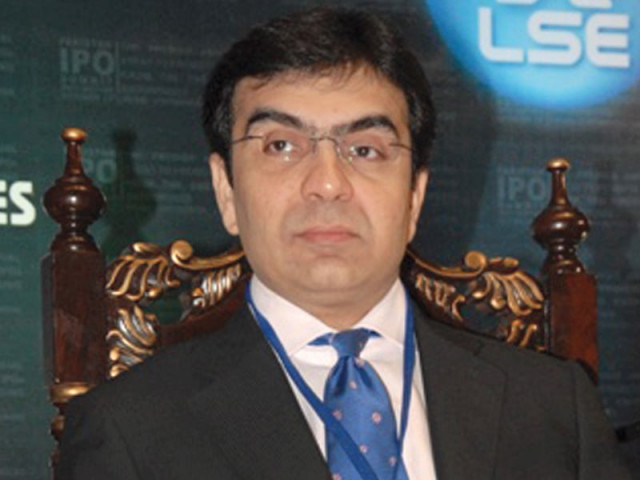Nearly there: Demutualisation to take place within four months
Stock markets will shift from being oligopolistic partnerships to listed corporations.

There is finally a timeline: four months after President Asif Ali Zardari signs the 2012 Demutualisation Act, the country’s three stock markets will be turned from oligopolistic partnerships into publicly listed companies designed to make the markets more transparent, efficient and offer better protection to investors.
The announcement to this effect was made by Muhammad Ali, the chairman of the Securities & Exchange Commission of Pakistan, the country’s top capital markets regulator. He was addressing a press conference a day after a joint session of both houses of Parliament passed the Demutualisation Act. The passage of the act comes as a triumph for Ali, who has been pushing hard for this legislation since he came into office in December 2010, though the legislation predates his tenure.
“Demutualisation will convert a non-profit, mutually owned stock market to a for-profit entity owned by the shareholders,” he said.
Over the next two years, 40% of the shares in the stock exchanges will be sold to as yet unidentified ‘strategic investors’, another 20% will be offered to the public via listings on the stock exchanges and the remaining 40% will be owned by the existing 200 brokers that currently control the market.
In order to conduct valuations of the stock exchanges and sell their shares to investors, the government has disbarred any investment bank that has a securities brokerage license in Pakistan. This rules out all of the local investment banks, as well as JP Morgan. The government plans to hire an investment bank ‘of international repute’ to lead the underwriting of the transaction.
Demutualisation is meant to make stock markets more efficient and offer better returns to investors, as opposed to markets controlled by stock brokers. Yet it is not necessarily a very old trend. Indeed, the New York Stock Exchange, the largest in the world, did not demutualise until 2005.
Muhammad Ali said that the structure of the market would change, separating ownership of the exchange from trading rights, which in turn would improve supervision and enforcement.
The governance structure of the stock exchanges would also change. The SECP currently appoints four of the nine directors on the stock exchange boards. After demutualisation, that would increase to six, giving the regulator an effective veto over the affairs of the exchanges, which would allow for more investor protection.
In order to make the idea more palatable to the existing brokers, however, the SECP has offered a few sweeteners. For instance, no new brokerage licenses would be issued for three and a half years. Over the next ten years, only 15 more licenses would be issued, after which membership of the stock exchanges would be open to all.
The SECP is also making no secret about the fact that it believes that three stock markets is too many for a country whose total equity market capitalisation stands at under $40 billion. “The SECP believes that in future the stock market management should think about mergers,” said the chairman.
In the meantime, the government is trying to encourage more investors into the market. The government appears ready to back the SECP’s plan to freeze capital gains tax rates for the next two years at the current maximum of 10%, in addition to exempting stock market investors from having to declare their source of income.
The government, however, has encountered legislative resistance and have not been able to push these changes through. The SECP chairman admitted that the government would miss its April 1 deadline for implementing these changes.
Officials in the SECP say the government will try to go through a presidential ordinance to implement the plan, but that is currently not possible since Parliament is in session.
Published in The Express Tribune, March 29th, 2012.


















COMMENTS
Comments are moderated and generally will be posted if they are on-topic and not abusive.
For more information, please see our Comments FAQ